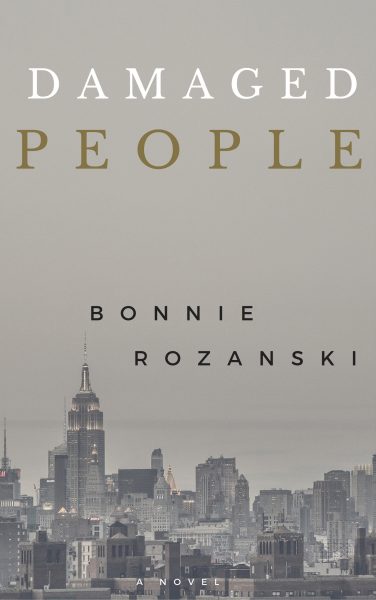I can’t help but notice, as several reviews come in on DAMAGED PEOPLE from Goodreads and elsewhere, that if social media works, it can be an amazing thing. Of course, that’s not news to most people. In fact, not even to me. I wrote a book in 2010 – back in the midst of the Facebook explosion -based on the unlikely global connections between people online.
SIX CLICKS AWAY started with an interesting idea: what would happen if a network got overloaded with links. I had been reading up on network science and found an occurrence called a winner-takes-all network. The most active node suddenly grabs all the links, and the network reconfigures itself into a star-shape, where all the nodes end up connected to one central hub. I thought immediately of what would happen to Facebook if someone could go beyond the current restraints of 5,000 friends to reach half a billion friends. Poof! The network reconfigures itself to form a star, and everyone has to go through one person to get to anyone else.
That forms the main plot, in which a geek and a Jersey girl send a message to a friend, who sends it on to her friend, and on to her friend, ad infinitum, with the goal of reaching the Dalai Lama. It’s a simple classroom project meant to demonstrate six degrees of separation: how everyone in the world is connected by at most six links. But the instant half a billion connect to the same page, things get a little wild.
Best about SIX CLICKS AWAY, though are the characters. I had loads of fun using the places I had lived in: Seattle, Toronto, New York, and adding a few I hadn’t, like Bangalore, India. It’s a toss-up who my favorite character is: either the Indian collections operator who can’t stop caring about the people whom she bankrupts, or the New York bag lady with an attitude. And, of course, the characters connect, in direct and indirect ways. It was a hoot to write.
Anyway, back to the main point. Today I noticed that Acacia Ives, an inveterate and amazing blogger from Maine, had posted an early review of DAMAGED PEOPLE on Goodreads. In the few hours since she had posted it, Acacia got 4 Likes for her review and five people who listed themselves as wanting to read it. As I clicked on each of the want-to-readers, I found people from Ireland, Toronto and Hong Kong. Likers came from the UK, Canada and San Antonio, Texas. It amazes me again and again what a small world we live in.
Countdown to Damaged People Release
Day(s)
:
Hour(s)
:
Minute(s)
:
Second(s)
Damaged People

Damaged People is literary, edgy and character-based.
Like The Corrections, it is literary, edgy and character-based. Like We Are Not Ourselves, it is a moving multi-generational novel. Unlike them, however, Damaged People has a premise founded in cutting-edge science: that powerful environmental conditions routinely leave imprints in our genetic material, short-circuiting evolution and passing along new traits in a single generation.
Damaged People is not your mother’s family saga.
Like The Corrections, it is literary, edgy and character-based. Like We Are Not Ourselves, it is a moving multi-generational novel. Unlike them, however, Damaged People has a premise founded in cutting-edge science: that powerful environmental conditions routinely leave imprints in our genetic material, short-circuiting evolution and passing along new traits in a single generation.
Damaged People tells of three generations of a New York City family wounded by a single tragedy that ricochets from person to person:
The young father, Joe, who, out of his mind with grief when his wife dies unexpectedly from a blood clot after giving birth, cannot bear to touch his newborn son.
The young boy himself, who grows into a titan of finance, wildly successful in business but ruthless and paranoid with people.
Then there’s Russ’ only son, Jack, who is overcome with an anxiety he cannot understand or resolve, but one that seems only to have been passed on from his father’s early experience.



